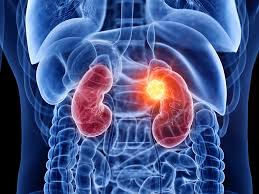This is a proven fact that long-term usage of painkillers may harm kidneys, and also a healthy kidney. Therefore it is important to avoid the usage of painkillers unless advised by your doctor for a particular reason. In persons who already have a decreased kidney function, some medications such as NSAIDs (nonsteroidal anti inflammatory drugs) are supposed to be avoided as these reduce the blood flow to the kidneys, hence could even damage them. Although the painkillers have a good effect on headaches, fevers or pain elsewhere in the body, their dangerous side effects are to harm the kidneys. Before yo pick up a painkiller drug please do note the following points about painkillers.
- The medications available for pain relief may have potential benefits along with a set of risks such as kidney damage, fluid retention, increased blood pressure and digestive issues. There are many over the counter drugs and some that need a prescription like ibuprofen, naproxen, aspirin all of which have very bad side effects.
- In cases who have a decreased kidney function, the NSAIDs should be avoided since they reduce the blood flow to the kidneys.
- Painkiller medications are supposed to be taken as per the prescription given by your doctor, as he knows the least dosage your body needs for the least number of days. Anything in excess could be harmful to your kidneys.
- Since the NSAIDS are named by their generic name and not mentioned specifically by the name NSAID, there is a good chance that a patient may consume more than one :drug of the same kind.
- As kidney patients could be sensitive to the NSAIDS, it is important to ask your doctor or pharmacist about the details of the drugs you would be using. They could play havoc sometimes, take care to prevent further damage to a kidney which is not in perfect condition already.
- NSAIDs can reduce the effect of blood pressure drugs and thus it can result in heart attack or stroke.
- NSAIDs given as diuretics such as Hydodiuril, actually remove excess water from the blood vessels.
- In case a person is suffering from epilepsy, the painkiller called Tramadol should not be used as it can increase the chances of a seizure attack. Other similar drugs are Paxil, Prozac, Zoloft.
Advice : Now since we have mentioned the ill effects of NSAIDs, a patient suffering from pain should not evade from taking them, untreated pain could give serious results in course of time. Follow the instructions given by your doctor as he would best.
Antibiotics to treat Kidney Stones
Some common medicines that doctors prescribe for reducing the levels of uric acid in the blood and urine could be allopurinol(Zyloprim,Aloprim), these medicines also keep the urine alkaline. Now, being an alkalizing agent, it can dissolve uric acid stones. This oral antibiotic is usually given for about 1 to 6 weeks and sometimes for a longer duration. Some commonly prescribed medicines are listed below :
- Allopurinol given for uric acid stones
- Diuretics for water retention.
- Tamsulosin to relax the ureter and help the stone to pass easily.
- Broad spectrum penicillins
Note: There is a class of antibiotics linked to the risk of kidney stones which should be taken under strict observation of your doctor. They include sulfas(Bactrim, Gantanol), cephalosporins(Keflex), fluoroquinolones(Cipro), nitrofurantoin(methenamine(Macrobid,Hiprex) and broad spectrum penicillins. Do remember that the proper usage of drugs has to be a balancing act. A study has cited that there has been a disturbance in the bacterial(microbiome) makeup of the intestinal and urinary tracts, the reason behind this is supposed to be the usage of antibiotics.



